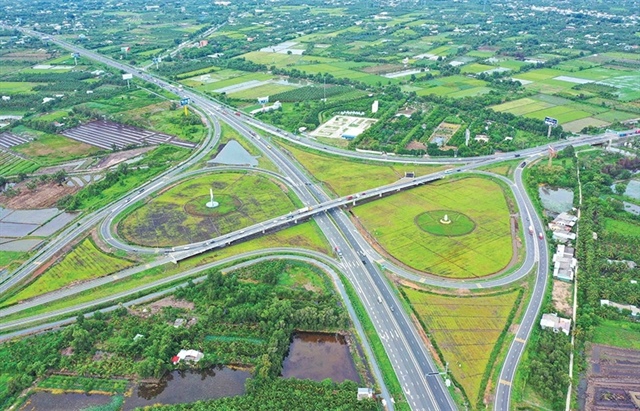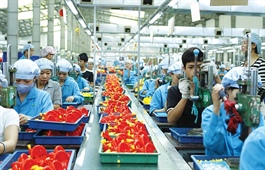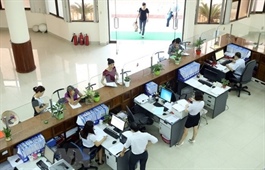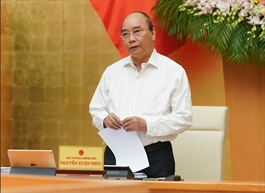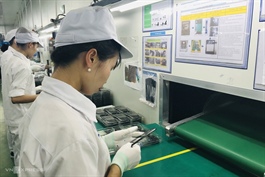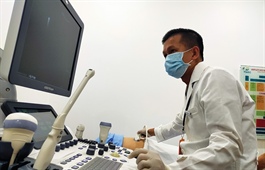Investing in people to avail of EU’s tech advances
Investing in people to avail of EU’s tech advances
Vietnam’s integration into global value chains will remain just a dream without foreign investment, says Giorgio Aliberti, Ambassador of the Delegation of the European Union to Vietnam, who discussed with VIR’s Hai Van what can be expected in the coming years.
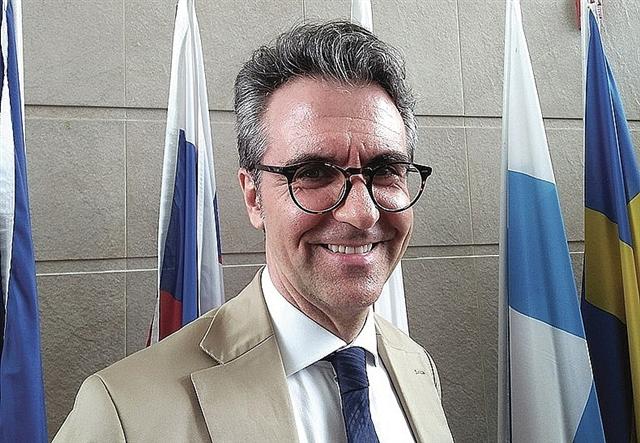
Giorgio Aliberti, Ambassador of the Delegation of the European Union to Vietnam
|
How far have European technologies penetrated Vietnam, including technology transfer at the macro level and between businesses?
Openness to international trade is one of the most relevant and robust determinants of technology transfer. In order to successfully transfer technology and maintain sustainable economic growth, Vietnam has to invest in human capital.
I believe that by improving education and skill levels of workers while also enhancing their productivity, combined with a higher emphasis on research and development (R&D), the uptake of technologies from the EU could be facilitated. The protection of intellectual property (IP) rights is also important in this context.
How do you think the EU-Vietnam Free Trade Agreement and Investment Protection Agreement (EVFTA and EVIPA) will improve Vietnam’s chances to reorganise activities on investment and technology transfer?
The FTA can be seen as a crucial factor in triggering the necessary domestic reforms in Vietnam and thus contributing to a more stable and predictable environment, which can in return boost stronger foreign direct investment (FDI) flows, technology transfer, and know-how sharing.
Transparency, protection of IP rights, labour and working standards, as well as environmental commitments will improve the performance of Vietnam’s administration as well as the economy as a whole.
Today, we can say that Vietnam is laying solid foundations for the implementation of the EVFTA. In fact, it is fair to say that the country is currently undergoing a reform of almost every aspect of its legal framework and society.
How has investment and tech transfer from the EU into Vietnam fared so far?
The EU is the fifth-largest foreign investor in Vietnam. European investors are present in all sectors, industries, and provinces across the length and breadth of Vietnam.
The top three sectors for European investment are manufacturing ($8.4 billion), production and transmission of electricity ($5 billion), and real estate ($2.6 billion). In 2018, trade in goods between Vietnam and the EU was worth over €49 billion ($58 billion).
The main exports from the EU to Vietnam – amounting to around €11 billion ($13 billion) – include high-tech products such as electrical machinery and equipment, pharmaceuticals, aircraft, and vehicles.
Only a limited number of domestic businesses can take part in the supply chains of foreign-invested enterprises. How do you think this can be improved?
Vietnam’s integration in global value chains (GVCs) is still quite limited. Despite progress in attracting FDI, Vietnam’s overall performance appears to lag far behind its potential. Without FDI, integration into GVCs will likely remain just a plan.
The EVFTA fully covers FDI from the EU. Without integration into GVCs, the growth in trade will be limited at some stage. In this context, the biggest challenge will be whether the business communities of Vietnam and the EU can fully reap the benefits of the EVFTA. Already today, the added value – which is basically the wealth that remains in Vietnam – is higher from EU FDI created exports than from other investors.
From anecdotal evidence, we know that EU FDI uses much higher local content and connects with many more Vietnamese suppliers than typical investors from other countries. The critical challenge is to increase the awareness of companies on market access preferences and to check if they are entitled to under the FTA and what they should do to get those entitlements. We sometimes meet local companies and the impression is that they are keen on the FTA but they have not yet been proactive enough to engage in this exciting venture.
What do Vietnamese businesses need to do to be part of supply chains for foreign-invested enterprises?
The EU-Vietnam partnership, especially the EVFTA and EVIPA, will support Vietnam in participating in GVCs. The EVFTA is expected to increase the exports of Vietnam to the EU by about 42.7 per cent by 2025 and 44.37 per cent by 2030 compared to a scenario without the EVFTA.
The total exports of Vietnam to the world are also expected to rise by about 5.2-8.2 per cent on average in the first five years of the FTA’s implementation, about 11-15 per cent in the next five-year period, and about 18-22 per cent in the following five years. It can be expected that because of the EVFTA, Vietnam will attract foreign investors and will be subject to thorough reforms, which may improve the business environment.
Broad and in-depth commitments on investment via the agreement will help Vietnam continuously renovate its economic structure, improve its institution and business environment, and facilitate EU investors to do business in Vietnam.
This will boost FDI inflows from the EU to Vietnam in the coming time. It can also be predicted that the EVFTA and EVIPA would attract high-quality investment inflows from advanced economies when Vietnam opens its market of goods and services more for European enterprises. This will create new impetus for FDI inflows.






